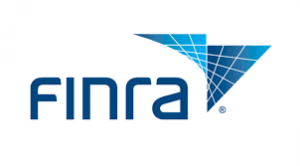
When settling a FINRA investigation, the Staff drafts a letter of Acceptance, Waiver and Consent (AWC) setting forth the terms of the settlement. In the AWC, FINRA routinely demands the settling party consent to the following restraint on speech:
“Respondent may not take any action or permit to be made any public statement, including in regulatory filings or otherwise, denying directly or indirectly, any finding in this AWC or create the impression that the AWC is without factual basis.”
A matter before the U.S. Supreme Court may upend FINRA’s use of a gag order.
Case In Point
On March 21, 2022, Barry Romeril filed a petition for writ of certiorari (Romeril v. Securities and Exchange Commission). Romeril asks the Court to consider whether First Amendment and due process rights are violated when the SEC forces a settling party to agree to a lifelong prior restraint barring any statement, however truthful, that even suggests that any allegation of the SEC is insupportable.
In 2003, Romeril settled an action initiated by the SEC. As part of the settlement and judgment, the SEC demanded a non-negotiable “consent” clause stating:
“Defendant agrees not take any action or permit to be made any public statement denying directly or indirectly, any allegation in the complaint or create the impression that the complaint is without factual basis.”
It is noteworthy that the SEC and CFTC systematically demand broad restraints on speech as a condition of settlement. See generally James Valvo, The CFTC and SEC Are Demanding Unconstitutional Speech Bans in their Settlement Agreements, Yale J. on Reg.: Notice & Comment Blog (Dec. 4, 2017). In so doing, settling parties are without defense in the court of public opinion.
Would FINRA Abide by an Adverse Ruling in Romeril?
If the Supreme Court accepts Romeril’s petition, the Court would determine the legality of the SEC’s gag order. Although the SEC’s gag order is identical in substance to FINRA’s gag order, FINRA is not a party to Romeril and it is unclear whether FINRA would abide by a ruling striking down the gag order.
FINRA goes to great lengths to proclaim that it is a “private entity” and not a “governmental body” bound by the U.S. Constitution. See e.g., D.L. Cromwell Inv., Inc. v. NASD Regulation, Inc. 279 F.3d 155, 162 (2d Cir. 2002). For example, in reliance upon this distinction, FINRA chooses not to recognize an individual’s right to invoke the Fifth Amendment privilege against self-incrimination in connection with on-the-record interviews. Nonetheless, FINRA does recognize certain Constitution-based rights. For example, in disciplinary proceedings, FINRA’s staff must turn over “Brady material” to the respondent (documents containing exculpatory material). See Dep’t of Enforcement v. Southeast Inv., N.C., Inc., 2019 FINRA Discip. LEXIS 23 *14 (NAC May 23, 2019) (interpreting FINRA Rule 9253).
Given that the gag order contained in an AWC mirrors the language within the SEC’s standard gag order, it would seem appropriate for FINRA to follow any guidance from the Supreme Court in Romeril.
Herskovits PLLC has a nationwide practice defending individuals and entities in FINRA investigations and disciplinary proceedings. Contact us at 212-897-5410.
 FINRA Lawyer Blog
FINRA Lawyer Blog

